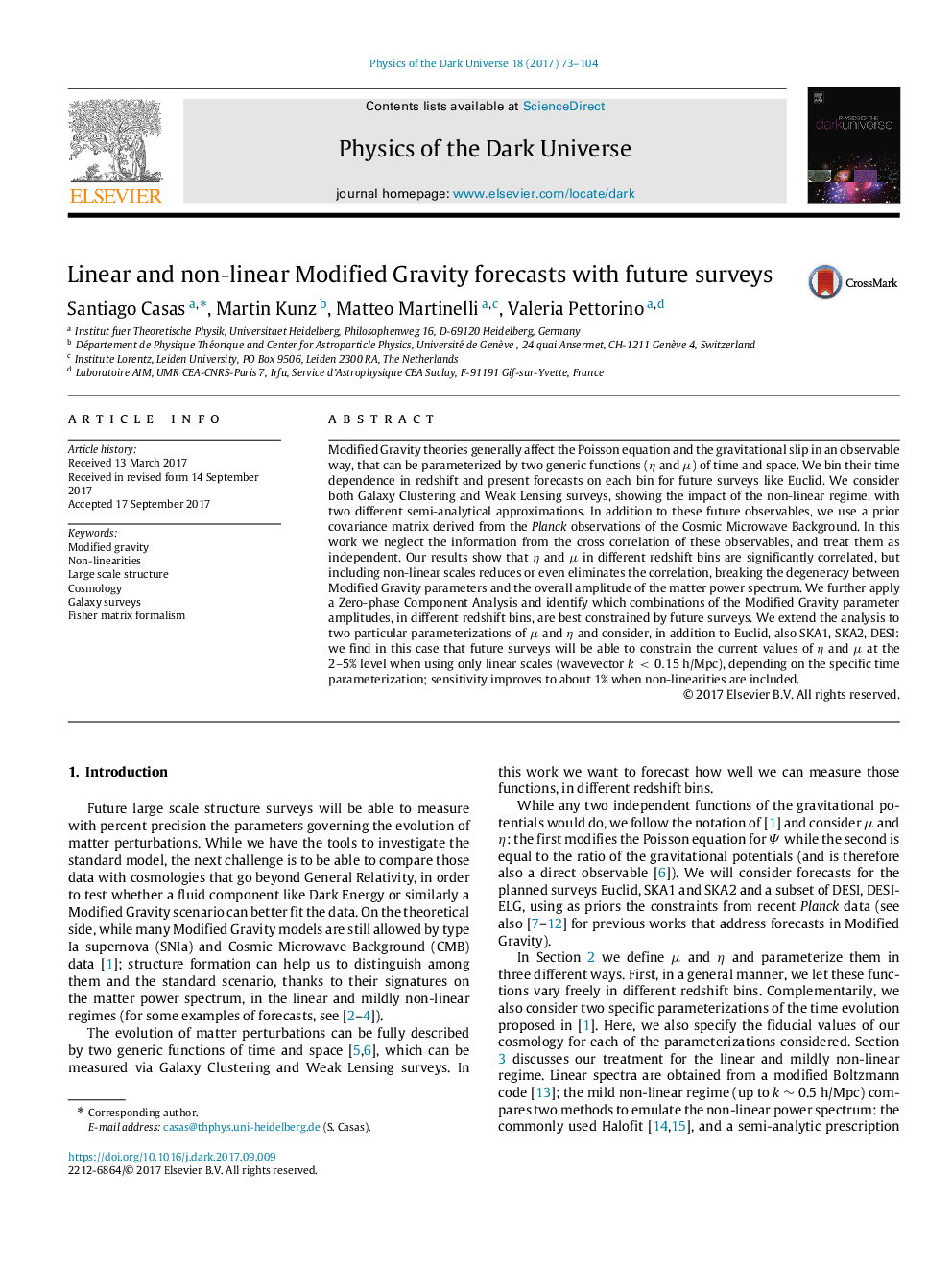| Article ID | Journal | Published Year | Pages | File Type |
|---|---|---|---|---|
| 5487895 | Physics of the Dark Universe | 2017 | 32 Pages |
Abstract
Modified Gravity theories generally affect the Poisson equation and the gravitational slip in an observable way, that can be parameterized by two generic functions (η and μ) of time and space. We bin their time dependence in redshift and present forecasts on each bin for future surveys like Euclid. We consider both Galaxy Clustering and Weak Lensing surveys, showing the impact of the non-linear regime, with two different semi-analytical approximations. In addition to these future observables, we use a prior covariance matrix derived from the Planck observations of the Cosmic Microwave Background. In this work we neglect the information from the cross correlation of these observables, and treat them as independent. Our results show that η and μ in different redshift bins are significantly correlated, but including non-linear scales reduces or even eliminates the correlation, breaking the degeneracy between Modified Gravity parameters and the overall amplitude of the matter power spectrum. We further apply a Zero-phase Component Analysis and identify which combinations of the Modified Gravity parameter amplitudes, in different redshift bins, are best constrained by future surveys. We extend the analysis to two particular parameterizations of μ and η and consider, in addition to Euclid, also SKA1, SKA2, DESI: we find in this case that future surveys will be able to constrain the current values of η and μ at the 2-5% level when using only linear scales (wavevector k<0.15 h/Mpc), depending on the specific time parameterization; sensitivity improves to about 1% when non-linearities are included.
Related Topics
Physical Sciences and Engineering
Physics and Astronomy
Astronomy and Astrophysics
Authors
Santiago Casas, Martin Kunz, Matteo Martinelli, Valeria Pettorino,
